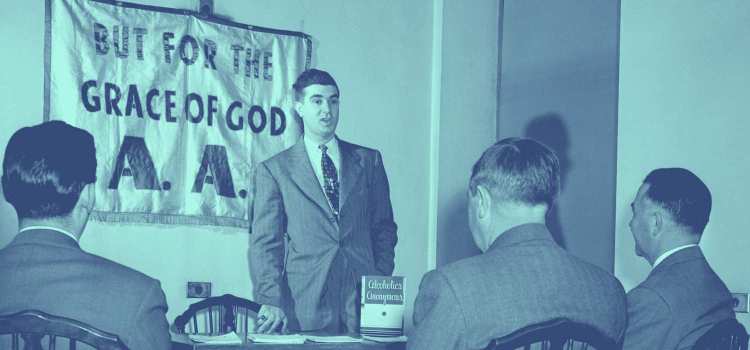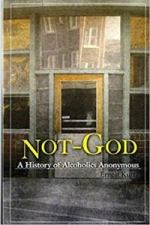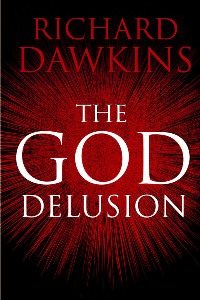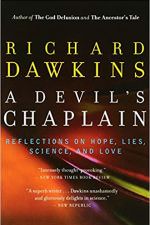Religion Free AA – Is It Possible?

Fifty Chosen Articles:
Number Forty-Three.
Originally posted in August 2020.
“AA was born as a religious entity.”
By John B
My answer to the question is no, and the purpose of this essay is to explain why I believe AA will remain saturated with religion. The claim that AA is not religious is delusional. Some may think delusional is a bit too harsh, but common usage of the word simply implies the harboring of a false belief or impression. Just how strong a grip does religion have on AA? Let’s start at the beginning.
AA was born as a religious entity. I make that statement without equivocation based on two sources: forty years of intensive AA involvement in N.E. Indiana and North Georgia, combined with Ernest Kurtz’s description of AA in his book, Not God: A History of Alcoholics Anonymous. Kurtz studied the History of American Civilization at Harvard, and the book was his doctoral dissertation.
 In the chapter, The Context of Religious Ideas, he looks at AA from within the parameters of classical American religious ideas and reaches this conclusion: “…the fundamental impulse revealed by and lived out within Alcoholics Anonymous will be found to be that of a uniquely American expression of Evangelical Pietism.” (Not-God, p. 182) Let’s break that down. Evangelical – the Protestant belief in salvation by grace alone, through faith in an atonement delivered by Jesus’s atonement. (Wikipedia) Pietism – emphasis on individual piety, and living a vigorous Christian life. (Wikipedia) In that chapter Kurtz gives Wilson credit for his efforts to avoid religiosity, and acknowledges that AA defines itself as spiritual not religious, but his final judgment tells us that AA is ‘uniquely’ religious.
In the chapter, The Context of Religious Ideas, he looks at AA from within the parameters of classical American religious ideas and reaches this conclusion: “…the fundamental impulse revealed by and lived out within Alcoholics Anonymous will be found to be that of a uniquely American expression of Evangelical Pietism.” (Not-God, p. 182) Let’s break that down. Evangelical – the Protestant belief in salvation by grace alone, through faith in an atonement delivered by Jesus’s atonement. (Wikipedia) Pietism – emphasis on individual piety, and living a vigorous Christian life. (Wikipedia) In that chapter Kurtz gives Wilson credit for his efforts to avoid religiosity, and acknowledges that AA defines itself as spiritual not religious, but his final judgment tells us that AA is ‘uniquely’ religious.
I have observed nothing in my forty years of AA attendance that would serve to refute Mr. Kurtz. One might not agree with the type of religion Kurtz assigns AA, but the 85 years of AA history clearly reveals a “lived out” religious impulse.
Why did that happen? Historians have documented the fact that there have been secular, atheist, agnostic influences within AA from its earliest days, but these alternatives haven’t gained enough traction to alter the course of AA, and presently there is nothing to indicate that we non-believers are anywhere near achieving the critical mass necessary to push official AA in our direction.
Some of the postings and replies on AA Agnostica made it abundantly clear that there is a lot of frustration, even some hostility, because of this apparent inertia on the part of AA. I’m part of the frustration, but I firmly believe that for me to think the God based orientation of autonomous AA meetings (which to many of us is in itself a manifestation of religion) will somehow disappear, would be as equally delusional as the claim that AA is not religious. AA Agnostica has posted some thoughtful arguments advocating change, but I think the problem is more complex than these hopeful reformers realize. Some aspects of human nature, combined with cultural influences, serve as powerful impediments to these frequently called for changes.
 Even if AA was born as a uniquely religious entity, as asserted by Kurtz, that fails to explain why, given the fact that every AA group is autonomous, the religious factions have remained dominant. In his book, The God Delusion, Richard Dawkins offers some insights that may help to answer that question; answers heavily invested in the Darwinian theory of evolution. Dawkins is an internationally known evolutionary biologist and an equally known outspoken atheist. Here is a quote that forcefully describe his contempt for religion: “Though the details differ across the world, no known culture lacks some version of the time consuming, hostility provoking rituals, the anti-factual, counter-productive fantasies of religion.” (God Delusion, p. 166)
Even if AA was born as a uniquely religious entity, as asserted by Kurtz, that fails to explain why, given the fact that every AA group is autonomous, the religious factions have remained dominant. In his book, The God Delusion, Richard Dawkins offers some insights that may help to answer that question; answers heavily invested in the Darwinian theory of evolution. Dawkins is an internationally known evolutionary biologist and an equally known outspoken atheist. Here is a quote that forcefully describe his contempt for religion: “Though the details differ across the world, no known culture lacks some version of the time consuming, hostility provoking rituals, the anti-factual, counter-productive fantasies of religion.” (God Delusion, p. 166)
This atheist sees religion as useless, even destructive. How has it survived and become so pervasive? The simple fact that religion has survived, according to the Charles Darwin’s theory, is because it has contributed something to the survival of our species.
If we go back a few hundred thousand years what primitive trait might we find, that when genetically passed on, would make humans receptive to religion? Dawkins sorts through a wide array of possibilities, evaluates them all and settles on one. “My specific hypothesis is about children.” (God Delusion, p. 174) Throughout the millennia our species has survived on the cumulative experiences of previous generations and passed that information on to the next generation – our children. This serves to reduce fatal mistakes by the young. Kids need to know that snakes and alligators might be dangerous. More importantly, the continuation of this process over thousands of generations contributed to the evolutionary development of a newborn’s brain receptive to believe what is told to them by elders.
I find it impossible to argue with that principle of evolution because it is so apparent to all of us. Easter bunny, tooth fairy, Santa. For a few years they believe pretty much anything we tell them. The human brain is obviously receptive to information that enhances survival, an attribute that has value in its own right. Seven billion or so of us wandering around on planet earth strongly supports that hypothesis. What’s not so obvious is Dawkins contention that a human receptiveness to religion piggy-backed its way into our brain.
That claim may be “a leap too far” for many, but I find it easy to accept for at least one simple reason. World estimates indicate that between five and six billion humans, who live in widely differing cultures, have chosen to affiliate with one of the world’s many religions. Secularists, atheists, and agnostics are estimated to be about one billion.
Dawkins explains this huge disparity this way: “The religious behavior may be a misfiring, an unfortunate by-product of an underlying psychological propensity which in other circumstances is, or once was, useful.” (God Delusion, p. 174)
That’s the evolutionary biology take on this issue of the acceptance of religion. We see religion was allowed entry into the arena of life without having to buy a ticket.
It turns out that biologists are not alone, they have received some backing from the field of evolutionary psychology. Here’s Robert Wright from his book, The Moral Animal: Why We Are the Way We Are. “People tend to believe things that are in their evolutionarily ingrained interest.” (The Moral Animal, p. 365) Neither of these fields of studies tells us when religion slipped into the human brain and utilized the already developed receptivity. I don’t find that omission compelling, the point is religion got in, and it’s still there.
 We have now evolved far beyond our primeval circumstances, but information is still passed on to the young by our elders, and those young minds absorb it. Normal maturation leads us out of the tooth fairy stage and we begin to learn on our own, ask questions and use our reason to find answers. Some of us are able to use reason to shove religion aside, while most end up influenced by some form of religious impulse. Here I bring in Mr. Dawkins again. In his book, A Devil’s Chaplain, he warns us that in spite of our power of reason, this receptive brain of ours far too often relies on three bad reasons to attach validity to things we are told. Those reasons are tradition, authority, and revelation. It seems to me that all three of these have helped to make AA a self-perpetuating religious institution.
We have now evolved far beyond our primeval circumstances, but information is still passed on to the young by our elders, and those young minds absorb it. Normal maturation leads us out of the tooth fairy stage and we begin to learn on our own, ask questions and use our reason to find answers. Some of us are able to use reason to shove religion aside, while most end up influenced by some form of religious impulse. Here I bring in Mr. Dawkins again. In his book, A Devil’s Chaplain, he warns us that in spite of our power of reason, this receptive brain of ours far too often relies on three bad reasons to attach validity to things we are told. Those reasons are tradition, authority, and revelation. It seems to me that all three of these have helped to make AA a self-perpetuating religious institution.
Maybe the argument against the religiosity of AA is misdirected; maybe the real confrontation is with human nature and the culture at large. To change AA will require an alternative as powerful and appealing as the current belief in God as the primary source for successful recovery. What language can be used? What cluster of words can be presented as a powerful frame? What core values that motivate agnosticism, atheism, or humanism can be defined and presented in ways that would motivate alcoholics to buy into those values?
Who has the time, the talent, and the commitment to make this happen? I don’t have the answers! Do you?
John is an eighty-five year old sober alcoholic with over 35 years of continuous sobriety. Married to Helen for 55 years; three kids in their 50’s. Spent 17 years teaching and coaching at the high school level in Indiana and Illinois. Owned and operated a bar and restaurant for 13 years which led to the acceleration of his alcoholism, which led to treatment, and eventually led to a career as an addiction counselor. Retired in 2001 from the Marion, In. V.A. Served as office manager for a major AA intergroup office in N.E. In. for six and a half years. Passionate about family, recovery, basketball, and the St. Louis Cardinals. Reads 20 to 25 books a year, and three or four quality periodicals on a regular basis; mostly about politics, economics, science, history: about anything going on in the world that strikes his curiosity.
For a PDF of this article, click here: Religion Free AA – Is it Possible?

























I did not give this article deep enough consideration when I read it the first time.
It convinces me today that the best I can hope for is an enclave within AA which is supportive of my reality based worldview. And that is what aaagnostica and you all have provided me. Thanks.
Thanks John. Dawkins and Hitchens are always great. Celebrating 38 years this summer. Possible because of the few at Chicago Mustard Seed who told me to not worry about the BS. instrumental in my sticking around.
I’m going to make AA non-religious just as soon as I’ve finished convincing McDonald’s to go vegan.
Based on the Alcoholics Anonymous text being a suggested 12 Step recovery program, it has no dogma. The dogma exists in the Alcoholics Anonymous Fellowship, which isn’t the suggested 12 Step recovery program. Unless there’s ignorance (lack of knowledge), each meeting is autonomous.
I think that this article is an example of the false reasoning/logic that John sees in religious believers.
1. AA was founded on religious principles and is still very much religious.
2. Religion has an evolutionary underpinning.
That is not a logical reason to say that a religion-free AA is not possible. It does not follow. The reasoning is not there. There is no logical path here.
Religion is losing its foothold in many organizations.
The United Kingdom’s official religion is Christianity. Over the years that has died away to the extent that it is now true in name only. A huge and growing proportion of the population are not religious any more.
There is no reason given in this article why religion in AA cannot die out in the same way.
The religious in AA hold the power and the powerful never give up their power without a struggle. But we see it happening already, with the hundreds of secular AA meetings and the refusal of atheist members to stay in the closet.
I would say that “The times they are a changing”.
An excellent article John. Having been raised in an evangelical family, I can attest to the process of indoctrination that starts at birth and continues throughout life. Religion has had a place in community since an enterprising individual found that they could benefit by purporting to be able to explain the unexplainable. I think there is as much chance of AA changing it’s culture as the sun rising in the west.
It is simply not important whether AA is religious or not… Does AA work? is the only question that is relevant. I have been sober now for 20+ years. Yes, AA works for me. AA does not work for everyone. We have to find our own way to living a good and happy life. The same with everything in life: Some people are vegans. Others are not. Some are Democrats others not… Good luck finding your personal pathway, but maybe analyzing AA is your happy way of living 😊
Thank again John, and everyone who weighed in.
Fun fact:
The 2020 Membership Survey in the UK seems to reveal that most of England AA members are irreligious. They asked the question “do you have a higher power?” – 20% NO, 80% YES. That is not too bad; if AA is religious not all the members are.
Then they asked those 80% “is your higher power religious or secular?” What do you think the break down is? 2/3 of people who have a higher power in UK AA have a secular higher power. 1/3 have the sky-guy with a plan type of HP.
I wonder if anyone was surprised by that? Maybe they could ask USA/Canada members.
Maybe we would be surprised by the answer.
Here’s a PDF of the survey: AA Membership Survey 2020.
Thank you for the article, John. I was told early on “Take what you need and leave the rest”. I’m fortunate to have remained sober and found a path that works for me. Sadly, there are many in AA that are quick to tell others they are “Doing it wrong”.
Happy that I found My People in AA.
AA usually hides behind the “spiritual/not religious” label without acknowledging its own religiosity. Obviously, though, it came from a deeply religious tradition (the Oxford group), and it requires an intervening “Higher Power” in order to complete the 12 Steps. The Big Book flatly, if hysterically, declares “rarely have we seen a person fail who has THOROUGHLY followed our path. Those who do not recover are those who cannot or will not give themselves to this simple program, usually men and women who are constitutionally incapable of being honest with themselves…” For those that do “give themselves to this simple program” the program in turn centers around a “spiritual awakening” as “THE result of these steps”. Its primary tool is a submission to “spiritual principles” and to those who disagree with this premise, the Big Book offers the nonsensical and often inaccurate and condescending “We Agnostics” chapter. It’s basically always placing the blame for failure to maintain sobriety on the alcoholic and never questions or challenges the means and methods of the program. It’s often said in meetings that those who fail, “tried to do it THEIR way”, “couldn’t become humble” or “weren’t able to invite a Higher Power” into their lives.
Discussions about AA being “religious” are often very closely tied to discussions about AA being a “cult” (as in, “is AA a religious cult?”). Arguments can be made about AA being religious, others can be made about it NOT being religious, as can the arguments about AA possibly being a “cult” or not or is it simply “cultish” in some of its teachings and practices. The problem is, those terms are usually politically and culturally loaded (as in, “wait, AA isn’t like Scientology or other REAL cults”, etc.). Getting caught up in these debates, we can often get bogged down in definitions and be distracted from the main issue at hand, which is the following: Is AA and its “spiritual” focus still the best treatment option that we should be sending to people in the 21st Century? We can take “religion” out of AA, in many ways we already have. AA is non-denominational and non-sectarian. However, to change the practices and traditions of AA to truly take religion out of AA would immediately make it unrecognizable. Perhaps that’s why Oldtimers cling so tightly to the Big Book and every syllable of the program, because to allow for evolution of the program would be the end of the program (for them).
The dirty little secret of AA is that MOST people who come through the rooms don’t stay for long. The response from Oldtimers is usually something to the effect of, “they’re either in other meetings or they’re OUT THERE (ominous tone)”. Truth is, we don’t really know what happens to the multitudes of those who quietly churn through the rooms. Yes, many DO return to their addictive patterns and ultimately die from them. These are the many horror stories and cautionary tales that drift through the rooms (“Remember John? He was found dead in his apartment last week…”, etc.). Not spoken about, however, are the many, many people who leave and perhaps simply quietly move on with their lives, who use their time in the rooms to reassess their behaviors and whatever they did to bring them there in the first place. Some of them are really able to adjust and moderate their drinking and live functional, if sometimes somewhat diminished lives (if they continue to struggle). Others use their time in 12 Step rooms to “wake up” and simply stop their drinking, being “scared straight” by the stories and characters in the rooms. Others come and go from the rooms, perhaps coming back from time to time to revisit old friends and acquaintances and refresh their motivation and inspiration to stay sober. The point is, those who continuously attend meetings for years, decades, who make a lifestyle out of “recovery”, are a self-selected group all their own. It can seem like they’re the “chosen ones”, the ones who “get it” and over time become grizzled sponsors (who “don’t take your BS”) and the respected gurus of the meetings, dispensing worldly wisdom and self-effacing humor often barbed with underlying sarcasm and domineering imperiousness. However, they don’t have all the answers and despite the impression they often give, once you get to know many of them more deeply you quickly realize they really don’t have any “monopoly” on sobriety or spiritualism.
Here’s one I heard years ago—“Scientology claims to be a religion and it isn’t. Alcoholics Anonymous claims to NOT be a religion and it is.”
I encounter (quite rarely) secularists who see the Bigga Booka as flexible enough for them. They tend to hang their hat on the term “inner resource” of APPENDIX II. The New Thought movement was a huge influencer of both AA and the Buchmanites. New Thought had a different name for “inner resource.” They called it the “Indwelling Presence of God.”
“The ‘spiritual not religious’ folks (intentionally?) ignore the broader meaning of “religion.” AA’s religious roots go back to Pietism and the seventeenth century. They stressed a personal relationship with the Creator over ritual and dogma—just like AA. It’s still religion, in the broader meaning.
I found there were very few religion pushers in the groups I attended. They were tolerated at best, as well as the ego’s of some were also tolerated. It’s a group of tolerance and love for all in sobriety. There are many ways to work this program, I fully appreciate all the various people I encountered, even if I did not agree that their method was for me. I was amazed how hard some people make the program and also those who did not like the way others worked their program. Anyway I know it saved my life, and it should be as inclusive as possible.
I relate to your sentiment, Debra.
Tolerance is analogous to compassion, which is understanding behavior. If I spot it, I’ve got it, at the very least, intellectually. The 12 steps are suggested, as is Step 5, there’s no dogma. I’ve heard some 5th Steps over the years, from agnostics, atheists, and those of faith, all were shame based, including mine. I’ve never known a recovering alcoholic that isn’t shame based.